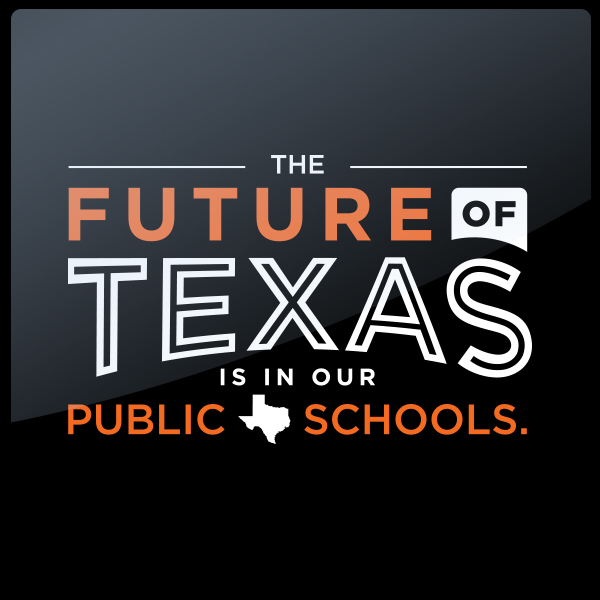
categories
Across the Lawn – October 13, 2023

October 13, 2023

Raise Your Hand Texas has a front-row seat to the Capitol. From our vantage point, public education policy issues have never been more important, and this is why we must make every session a public education session.
One Thing to Do: Contact Your Legislators
With an education special session underway, now is the time to contact your legislators and ask them to prioritize and make a significant new investment in our public schools. Take 15 seconds to email your legislators, and then forward the link on to three more people.
Email Your LegislatorFour Things to Know
1. Senate Passes $5.2 Billion School Funding Bill Focusing on Teacher Pay
The Senate passed a $5.2 billion school funding bill on Thursday, Oct. 12, the fourth day of the third called special session. SB 2 by Sen. Creighton adds almost $1.2 billion to the $4 billion appropriated to public schools during the 88th Regular Session.
SB 2 creates a teacher retention bonus for the 2023-24 school years. The funding will be continued as salary flowing to the district as an annual allotment beginning in the 2024-25 school years. The amount per teacher will depend on the school district enrollment size:
- $3,000 per classroom teacher for districts of more than 5,000 students, and
- $10,000 per teacher for districts with fewer than 5,000 students.
SB 2 also increases the basic allotment from $6,160 to $6,235 beginning in the 2023-24 school year, which is a $75 increase. The bill removes existing state law requiring schools to use a certain percentage of the basic allotment increase on compensation.
SB 2 provides adjustments to the school safety allotment, increasing the $10 per-student allotment to $20 per student and the campus allotment from $15,000 per campus to $30,000 per campus.
SB 2 increases salary allotments under the Teacher Incentive Allotment (TIA) and adds a new teacher designation. The bill also creates a new grant program to provide technical assistance to districts wanting to create or expand TIA programs.
Raise Your Hand Texas supports increasing the basic allotment by $1,100. This provides schools with the same purchasing power as 2019. Schools, like our families, have seen double-digit inflation over the last four years on items such as fuel, homeowner insurance, and food service. Schools also would like to provide appropriate teacher and staff pay raises; Texas currently pays our teachers $7,500 below the national average.
2. Senate Passes Voucher Bill
The Senate passed a substantial voucher program on Thursday, Oct. 12. SB 1 by Sen. Creighton creates an $8,000 per year Education Savings Account (ESA) for eligible students.
Eligible students include:
- any student who attended a public school for 90% of the time the previous year;
- a student entering Pre-K or Kindergarten; or
- a student who attended a private school or homeschool the preceding year.
SB 1 requires the Comptroller to oversee up to five education assistance organizations that will manage the ESA applications. If there are more applications than available funding, the education assistance organizations will create a lottery to fill the positions based on the following criteria:
- not more than 40% of positions awarded to children who are educationally disadvantaged;
- not more than 30% awarded to children in a household with annual income between 185% and 500% of the federal poverty guidelines;
- not more than 20% awarded to children with disabilities; and,
- any remaining positions in the program would go to all other eligible students.
The current appropriation from the 88th Regular Session for a voucher program is $500 million for the 2024-25 biennium. Eligible expenses using funds in the ESA include tuition and fees, textbooks and instructional materials, assessments, private tutors, transportation, and educational therapies.
SB 1, like bills during the Regular Session, contains a provision stating parents must be notified that private schools or vendors are not subject to federal or state laws regarding special education services in the same manner as a public school.
In a debate that lasted the better part of Thursday, Oct. 12, there were numerous amendments adopted. These included adding homeschooled students to those eligible for the ESA, barring state legislators from participating in the program, collecting certain demographic data, and adding a $10,000 hold-harmless for every student lost to an ESA in school districts under 5,000 students.
Now the legislation moves over to the House where it has already been referred to the House Select Committee on Educational Opportunity and Enrichment.
During an event on Thursday, Governor Abbott stated that once an ESA is passed, he will put on the legislative call the full funding for public education, including teacher pay raises.
3. Comptroller Announces $18 Billion in Available Revenue
Prior to the start of the third called Special Session, the Comptroller announced the Legislature has a projected fiscal 2025 balance available for certification of $18.29 billion. The Comptroller also projects a fiscal 2025 ending balance for the Rainy Day Fund balance of $23.77 billion.
Also announced this week was a change in how much is available under the state’s spending limits. The legislature has $6 billion remaining under the tax spending limit, a limit that would take a simple majority vote of each chamber to exceed and $13 billion dollars remaining under the consolidated general revenue limit, which takes three-fifths vote of each chamber to exceed.
4. New CCMR Rule Changes to A-F Accountability System Has Day in Court
On Tuesday, Oct. 10, over 100 school districts were represented in the Travis County District Court on the issue of new rule changes to our state’s A-F accountability system. The lawsuit is asking for a temporary restraining order arguing that applying the new College, Career and Military Readiness formulas to last school year’s data will unfairly make it appear that a school’s student outcomes have worsened when in many cases student outcomes have actually improved. Dee Carney, a consultant with Hillco Partners, works with Texas public schools on accountability and said the current chaos around the ratings disproportionately impacts the highest-need students, saying they need consistency in the system.
Under the proposed rules, TEA will increase the scale score for how it calculates college, career and military readiness indicators (CCMR), which make up a significant portion of a high school campus accountability A-F letter grade. It’s important to note that the data used for CCMR scores actually lag by a year, meaning TEA will use data from students that graduated in 2022 to calculate the A-F ratings for 2023. CCMR data include meeting criteria on SAT, ACT, TSIA, AP exams, completing dual credit, associates degrees, OnRamps, IBC, programs of study, industry based-certification, or military readiness.
The proposed changes in the CCMR scale score can be seen in the resources provided by TEA. In simple terms, TEA is changing its grading. It is moving from a 60 scale score equaling an “A” to an 88 scale score equaling an “A.”
Add these accountability changes to the redesign occurring with the STAAR test last year, and it becomes difficult to deduce the true impact of instruction on student outcomes from our current A-F system. Our students and schools should have at least a year to adapt to these significant proposed changes rather than be penalized for so many moving regulatory pieces.



